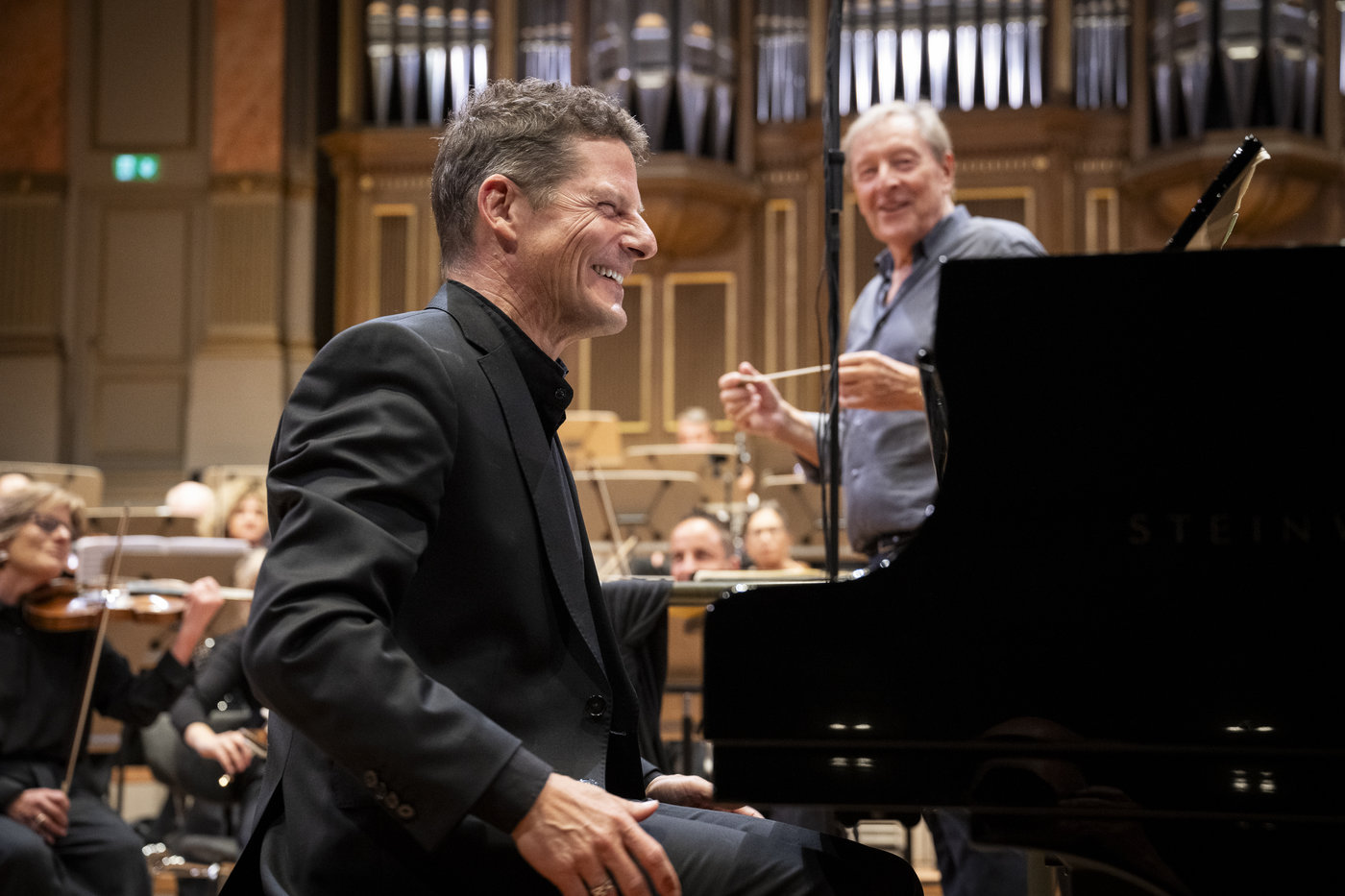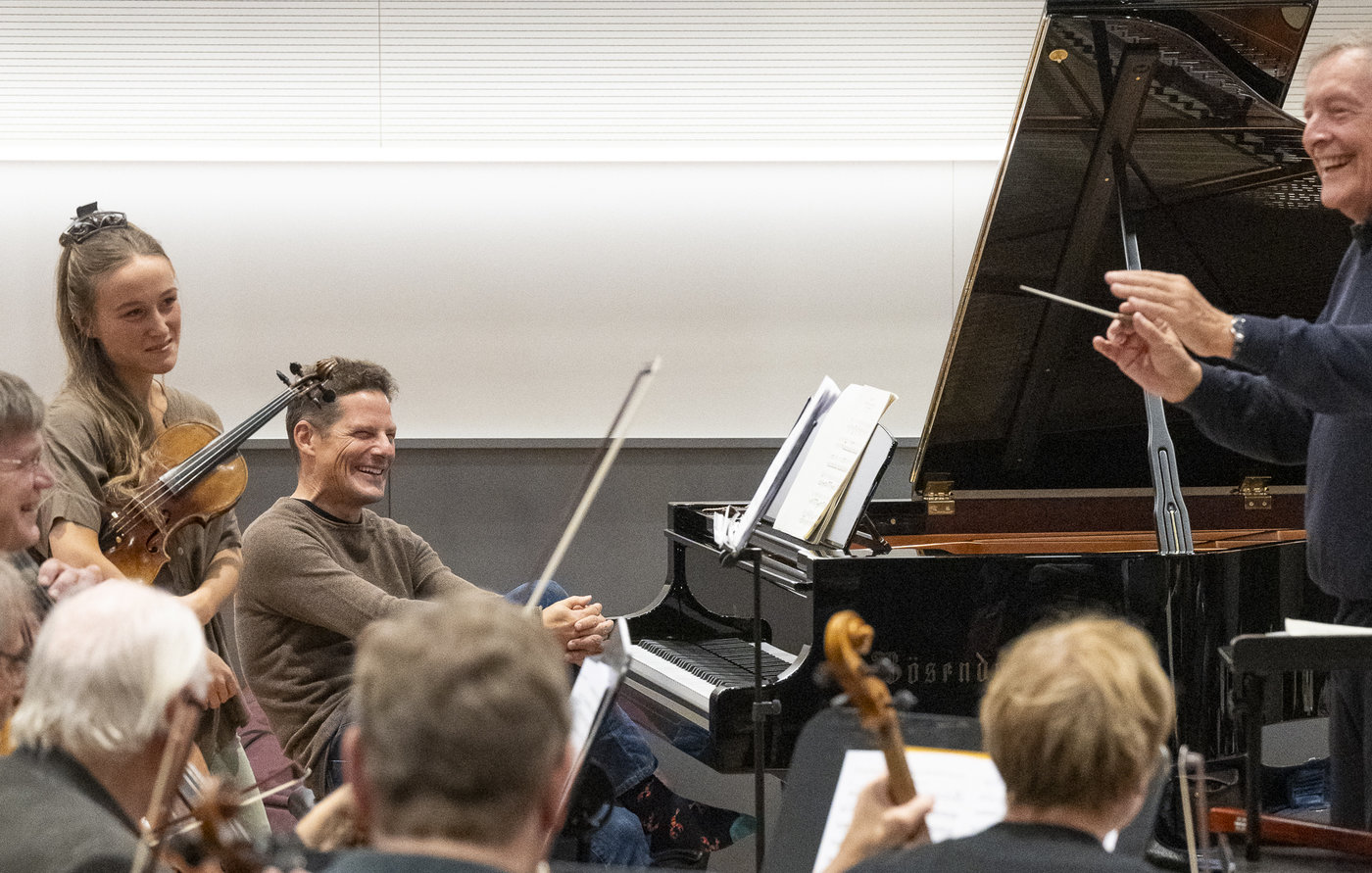Change of baton at the "talent scouts"
Howard Griffiths was artistic director of the Orpheum Foundation for 23 years. Now the pianist Oliver Schnyder is taking over this role. A review and outlook

The reason why he will be missed was also evident when he left. For over 30 years, the Orpheum Foundation young musicians. At the concert on October 21, which also marked the handover of artistic direction, Howard Griffiths demonstrated in a short farewell speech what it takes for a successful artistic career in addition to talent. He described his Orpheum Supporters Orchestra as a "doctors' orchestra", a term that in no way sounded disrespectful coming from him, but only underlined the mischievousness and enthusiasm of his personality.
Find the unique ones
Personality is also the main criterion he looks for as a "talent scout" in addition to musical qualities, Griffiths emphasized in the previous telephone conversation. In recent years, the number of technically highly talented people has increased, but the "very special artistic personalities" remain as rare as ever. An assessment shared by his successor Oliver Schnyder. In a written interview, he emphasized that the interpretations of young artists are increasingly approaching a "widely accepted standard" due to the lack of time for organic development, and concludes with the remarkable sentence: "I'm not at all sure whether musical personalities such as Fritz Kreisler, Edwin Fischer, Clara Haskil or Pablo Casals would still assert themselves in a comparable way today."
So the two are in agreement on the matter. The Orpheum Foundation is all about picking out unique personalities from the large reservoir of talent. A task that has been successfully accomplished so far, as a glance at the archive shows: Truls Mørk, Renaud and Gautier Capuçon, Yuja Wang, Alisa Weilerstein, Nikolaj Znaider, to name but a few, have all benefited from the foundation's support. It is therefore fair to speak of a success story. And all the indications are that this will continue with Schnyder. Schnyder, who was once one of the "pupils" himself, sees himself first and foremost as a new member of a strong team. Continuity is therefore the magic word, only the setting of a few new priorities is to be expected.
Exploiting development potential
In terms of this new focus, the concert on October 21 can also be described as programmatic. The Danish-Ukrainian violinist Anna Agafia Egholm, born in 1996, did not appear as the all-conquering soloist, but played Beethoven's Triple Concerto together with the former Orpheum soloist Maximilian Hornung on cello and Oliver Schnyder on piano. The concert thus pointed the way forward: the purpose and funding model of the Orpheum Foundation is to bring young soloists together with well-known orchestras and conductors. "We will now also transfer this idea to chamber music and invite great mentors to rehearse and perform with the young musicians," says Schnyder, describing his vision for the future.
For this reason, it did not matter that no "top orchestra" played the evening. Even though the Orpheum Supporters Orchestra, made up of amateurs and a few professionals, did a good job, it is not an ensemble in the sense of the foundation's guidelines. The interplay with the two established soloists, on the other hand, was definitely a top performance. The comparison with Hornung in particular also revealed Egholm's potential for development. His more concise and vivid phrasing impressively demonstrated what can be achieved in the often misunderstood Triple Concerto.

Speaking of development potential: despite all the praise for the Orpheum Foundation's track record, it could also exploit some new opportunities. Not from the point of view of those who are satisfied with the status quo of the classical concert business: Famous performers play the well-known repertoire from the 18th and 19th centuries. For everyone else, however, it would be nice if the 800-year tradition of classical music, which is constantly being developed further, were also more strongly reflected in the promotion of young talent.
Howard Griffiths has tried to do this with the introduction of Composers in Residence, among other things, but cited the enormous effort involved, which a small foundation could hardly cope with organizationally. Oliver Schnyder explicitly referred to the foundation's purpose in this regard, but did not rule out a certain expansion of the repertoire due to the new chamber music formats. And yes, it is not the task of a single foundation to reform the classical music business. But is it presumptuous to place a little hope in a foundation that established a revolutionary funding concept just over 30 years ago?








